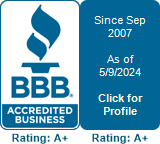5 Questions to Ask Your Bookkeeper Before You Open Another Location

If your business is doing great, you may consider expanding. But are you ready for a second location? A second location comes with all the benefits and drawbacks of the first. Often, it's risky and costly, but it carries with it a tremendous potential for profit. And the viability of a second location is going to depend on your books. Before you expand, you should ask your bookkeeper a few key questions.
1. How Long Can Another Location Last Without Revenue?
You shouldn’t count on your second location earning as much as your first, at least right away. Could your new location possibly last years without any profit? Where would the money come from? Would it come from investors, the bank, or your other business?
You need to determine how long you could fund a profitless location before you attempt to do so. Your bookkeeper can run the numbers to determine how much money the business could potentially lose and what situation you would be in if you did experience substantial loss.
2. How Are the Current Numbers Trending?
If your growth has slowed down or reversed, you may want to hold off on opening another location. Opening another location carries with it so much risk that you only want to do it when you can absolutely afford to. You may need to wait a few years for your current numbers to even out.
Trends may not be immediately obvious. Your business may be currently booming, but your accountant will be able to look at records and see if it's a brief boom following slowed growth.
3. Do We Need to Change Our Business Structure?
Many companies start out as a sole proprietorship, LLC, or LLP, and then find out that they need to restructure to a true corporation later on. As a business expert, your bookkeeper will know whether changing your business structure could save you money. Your new location may even need to become a business of its own.
You can also consult with a business attorney, but they will be more concerned about the legalities and legal protections involved. Your accountant is the professional who will tell you whether you can save money through structuring changes.
4. How Much Will We Pay in Taxes?
As a business owner, you probably know most of your expenses pretty well. But one thing you may not be aware of is how much you'll pay in taxes. When you expand into a new location, you will pay local taxes, and you may find your tax expenses to be greater than in your first location.
Ask your accountant not only how much you'll pay, but also whether there are opportunities to reduce these rates. You may be able to get discounts for things like energy-efficient equipment.
5. Will We Divert Any of Our Own Customers?
Let's say you currently have 1,000 customers for your business. If you open up a second business in another city in the area, you may find that the number of customers in your first business has actually gone down to 500. This happens when a new location diverts customers away from the original.
If customers outside of your service range already use support your business, your new location may end up serving the exact same customers — just with a little more convenience. Your bookkeeper can print out a report of your customer information to find out where your customers are primarily located.
For your business questions to be answered well, you first need to make sure your books are accurate. Hiring a quality accountant will help. Contact the experts at Quality Bookkeeping Services Incto learn more.













